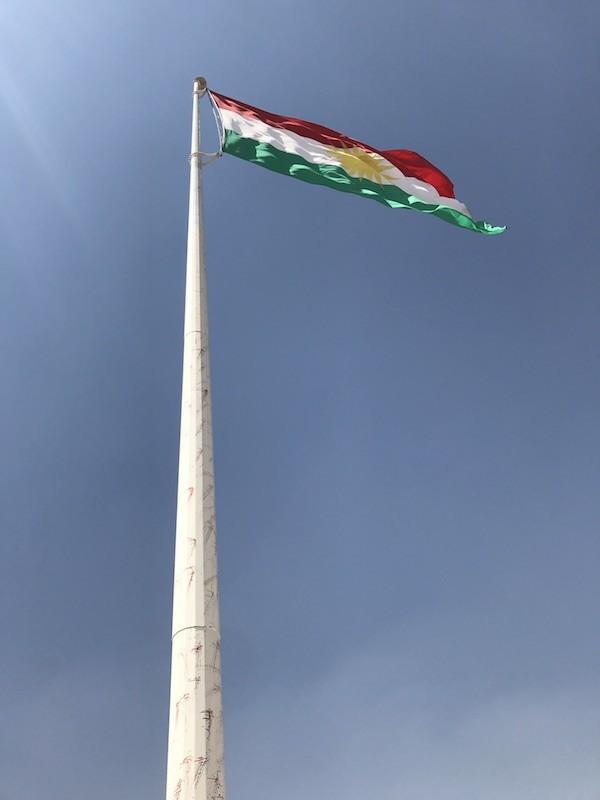By Mazen Barzani
Kurdish people in Iraqi Kurdistan, or South Kurdistan, revolted against the Iraqi government and gained semi-autonomy in 1991. After Saddam Hussein’s regime fell in 2003, the Kurdish leadership participated in the newly formed democratic federal government.
However, the relationship between Baghdad and Erbil has been full of disagreements and controversies. After the Iraqi army made it harder for the Kurdish army, the Peshmerga, to receive arms and supplies from foreign countries during the fight against the so-called Islamic State, the Kurdish leadership decided that an independence referendum was the next step.
Despite mounting pressure from Baghdad, neighboring countries, Europe and the United States to cancel or postpone the independence referendum, Erbil insisted on holding the referendum Sept. 25, claiming that the opposing countries have not offered a sensible alternative. The Kurdish people voted “Yes” with an overwhelming majority of 92.73 percent.
The Kurds have experienced many mass murders, bombardments and mass incarcerations throughout the 20th century, which mostly explains why so many Kurds are eager to leave a united federalist Iraq in pursuit of their own country despite being in a landlocked region.
However, past treatment of the Kurds was not the only reason they wanted to leave. Baghdad has not given the Kurdistan Regional Government the 17 percent of the budget that the KRG is entitled to per the Iraqi Constitution. Moreover, Baghdad has constantly threatened to use military force rather than dialogue to solve diplomatic issues with Erbil. The readiness of Baghdad to threaten the Kurdistan region with military force whenever an issue arose made the Kurdish people wary. Hussein’s attack on the city of Halabja with chemical weapons in 1988 remains in the Kurdish people’s living memory.
The Peshmerga, meaning those who face death in Kurdish, were overwhelmed when ISIS attacked Kurdish territories after they had captured the city of Mosul and four divisions’ worth of high-quality American weapons and vehicles left behind by the Iraqi army. The Peshmerga were under-equipped, fighting ISIS with weapons from the World War II era, but they managed to stop the ISIS expansion for the first time since ISIS started their quest to set up a caliphate.
The Coalition headed by the US helped the Peshmerga via airstrikes, but very few weapons that were sent to the Peshmerga made it into the hands of soldiers on the front as they went through the tons of red tape in Baghdad first.
The Kurdistan Regional Government decided that independence is the best option moving forward after the Kurds suffered thousands of casualties in the fight against ISIS. Kurdish officials have made a case to the West for support, saying that they seek independence through democratic means and that Kurdish history shows the openness of the Kurdish culture.
The Peshmerga have never fired a single bullet outside of Kurdish territories since the establishment of the Peshmerga in the short-lived Republic of Kurdistan in Mahabad circa 1945. The Kurds have also welcomed people all over the world; the diversity in Erbil and other Kurdish cities can attest to that.
While many people worldwide are concerned about the outcome of breaking up Iraq and the future of the Kurds in other countries, the Kurds are not very worried since they claim that they have already seen the worst in the past.
“No friends but the mountains” is a common saying of the Kurds — their mountains are still standing.














